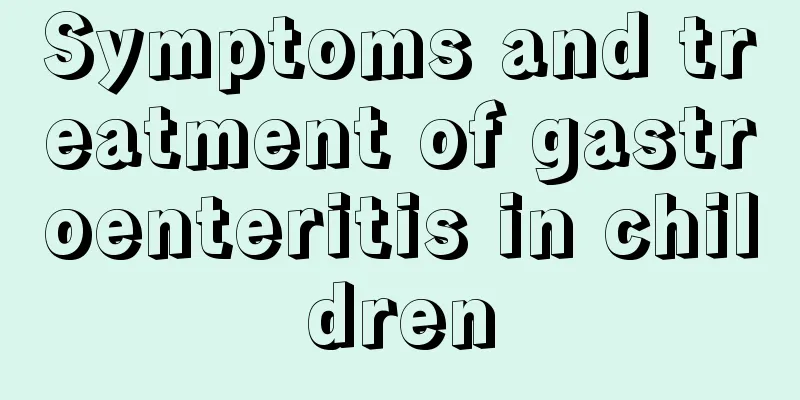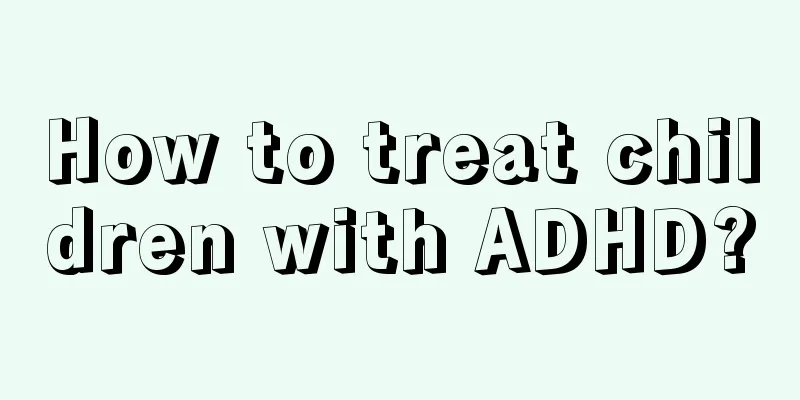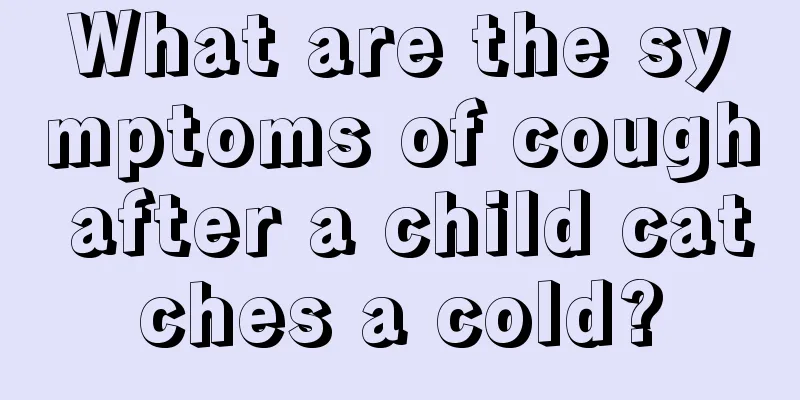Symptoms and treatment of gastroenteritis in children

|
Parents must pay attention to the occurrence of gastroenteritis in children, because children's gastrointestinal health is relatively fragile. If affected by any disease, the damage caused may be doubled. Therefore, it is necessary to promptly discover whether the child has symptoms of diarrhea, fever, nausea and vomiting, and provide symptomatic treatment. 1. Diarrhea: Acute onset, frequent nausea and vomiting, severe abdominal pain, frequent diarrhea, mostly watery stools, which may contain undigested food, a small amount of mucus, and even blood. 2. Fever: Fever, headache, general discomfort and symptoms of poisoning of varying degrees are common. 3. Nausea and vomiting: Severe vomiting and diarrhea may lead to dehydration, acidosis, and even shock. 4. Abdominal cramps and abdominal tenderness: The child has no obvious physical signs, but there is tenderness in the upper abdomen and around the umbilicus, no muscle tension or rebound pain, and bowel sounds are often hyperactive. 5. Loss of appetite , crying and restlessness. Diarrhea is defined as soft or watery stools and an increase in the frequency of bowel movements, so it should be compared to your baby's previous stool patterns. For example, it is normal for breastfed babies to have bowel movements several times a day. 6. Pay attention to fluid replacement and avoid dehydration Pay attention to dehydration symptoms: whether the child urinates less (the baby needs fewer diaper changes), cries without tears, has dry and inelastic skin, or has a sunken fontanelle. Regardless of whether the child has received an IV drip or not, you can buy electrolyte water specifically for diarrhea and give it to your child to drink as water. . 7. Pay attention to diet and continue breastfeeding Breastfed babies are advised to continue feeding as usual. Formula-fed infants should continue formula feeding immediately after ORT rehydration. You can try brewing it with half milk (i.e. diluting the concentration by half) first. If the diarrhea does not improve within 3-7 days, you may need to switch to lactose-free milk powder under the doctor's instructions. |
<<: What to do if your child has rhinitis and nasal congestion
>>: What to do if baby has rhinitis
Recommend
What to do if your child keeps waking up while sleeping
Children sleep restlessly, always rolling around ...
What should I do if my baby eats plastic paper?
Plastic paper is a piece of paper that looks like...
There is a white spot on the child's face
If a child has a white patch on his face, this is...
What causes moles on children?
Having moles on the body is a problem that people...
What is tricuspid regurgitation in infants?
The heart is an important organ that maintains ou...
What is the reason for children's lips peeling? Be careful of vitamin deficiency
In winter, many children's lips become dry an...
What causes vomiting in children?
Vomiting is a relatively common phenomenon. Of co...
Baby's palms are hot
It is well known that infants in swaddling clothe...
How to improve children's physique?
Because children are still young and their immune...
Can children with chickenpox eat eggs?
Chickenpox is a disease that often occurs in chil...
What are the 70-day baby development indicators?
A 70-day-old baby is very small and his developme...
How to treat children's cough
Coughing is a very common lung disease in childre...
What to do if your baby gets redness and swelling after vaccination
The redness and swelling after the baby gets a va...
What are the treatments for precocious puberty in children?
Precocious puberty in children will not only brin...
What should I do if my one-year-old child gets scalded?
One-year-old children are very active. Parents mu...









